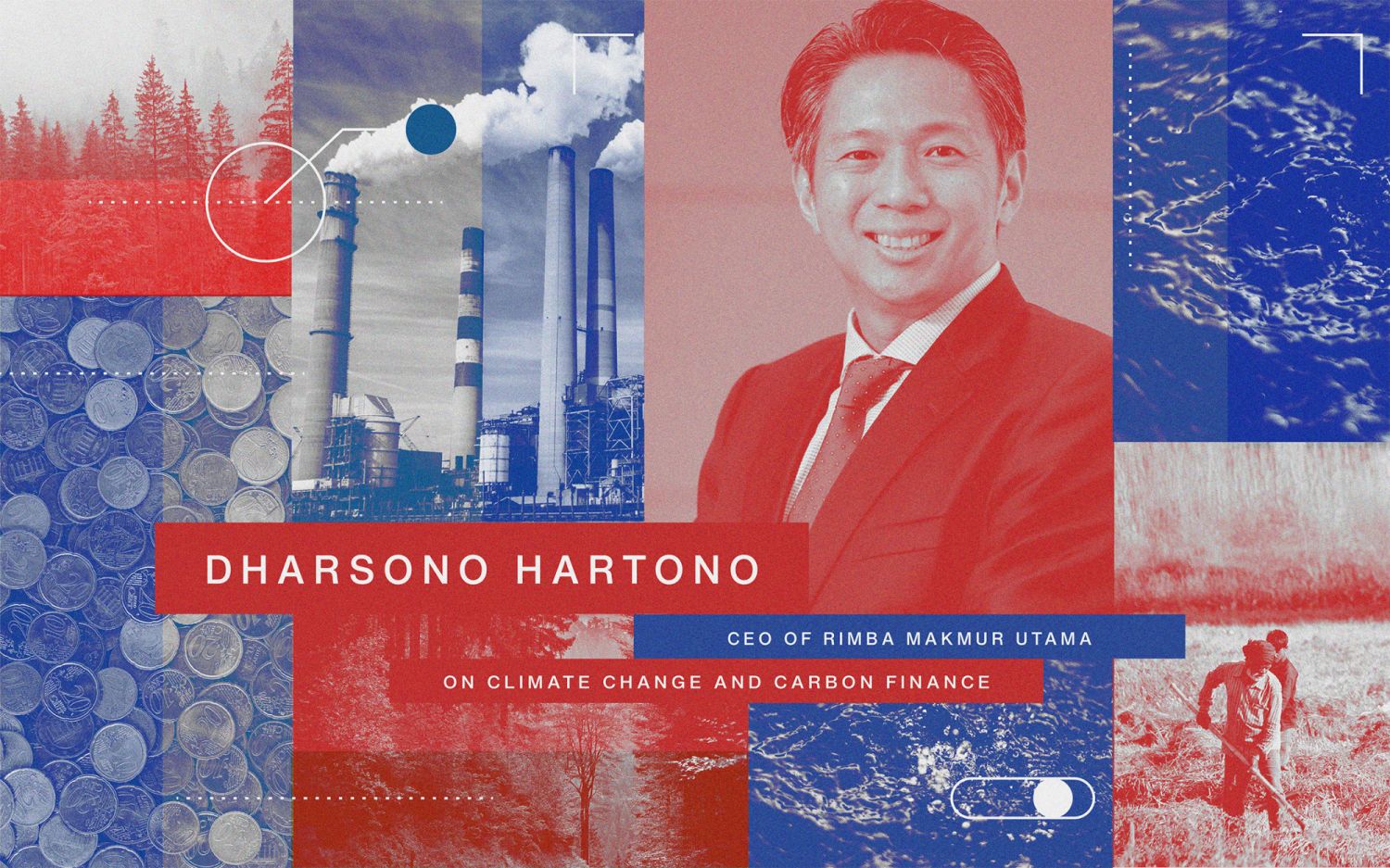Dharsono Hartono, CEO of Indonesian company PT Rimba Makmur Utama, writes about the responsibility of business in halting climate change, and how it is time to build a new “restorative economy”.
Before I set up the Katingan Mentaya Project in 2008, I’d never set foot in a forest. When we first took a flight to survey 157,857 hectares of land in Kalimantan that my business partner, Rezal Kusumaatmadja, and I were looking to secure a concession, I remember thinking at the time that we were crazy.
It wasn’t just that we were two young men with no background and just a dream. At that time, sustainability was in its infancy and the carbon credit revolution had yet to begin. Monetising conservation was a radical new idea, and while I saw the potential, part of me didn’t think it was entirely possible at the time.
But 15 years later, our project has fulfilled its goals—namely reducing deforestation and carbon emissions, protecting biodiversity, creating sustainable economic opportunities for local communities and issuing carbon credits to the global market. Annually, it generates 7.5 million tons of triple gold certified carbon credits, the equivalent of taking two million cars off the road each year. Each credit represents one ton of carbon dioxide removed from the Earth’s atmosphere. Companies purchase carbon credits from us to offset greenhouse gas emissions from industrial production. This volume has increased significantly as more firms move towards reducing their environmental impact; in 2021, the voluntary carbon market hit a record US$1 billion.
Here’s why carbon finance should be on every company’s watchlist.
We can no longer afford to ignore climate change.
As leaders, we can become too fixated on the bottom line, operate the way we always have and be reluctant to make changes. But it’s important to move on climate change. Stakeholder expectations are changing: research shows that a strong sense of purpose is critical if a company wants to survive the next hundred years. This is part of a generational shift, as millennials and Gen Z employees demand purposeful work and for their companies to take a strong position on pressing social issues. In Asia, investors are increasingly looking at ESG principles, which require companies move away from a profit-at-any-cost mindset. At the very least, organisations should show that their activities don’t hurt the environment. Ideally, they should show how they’re actively working to solve climate issues or the many social inequalities we see in the world today.
